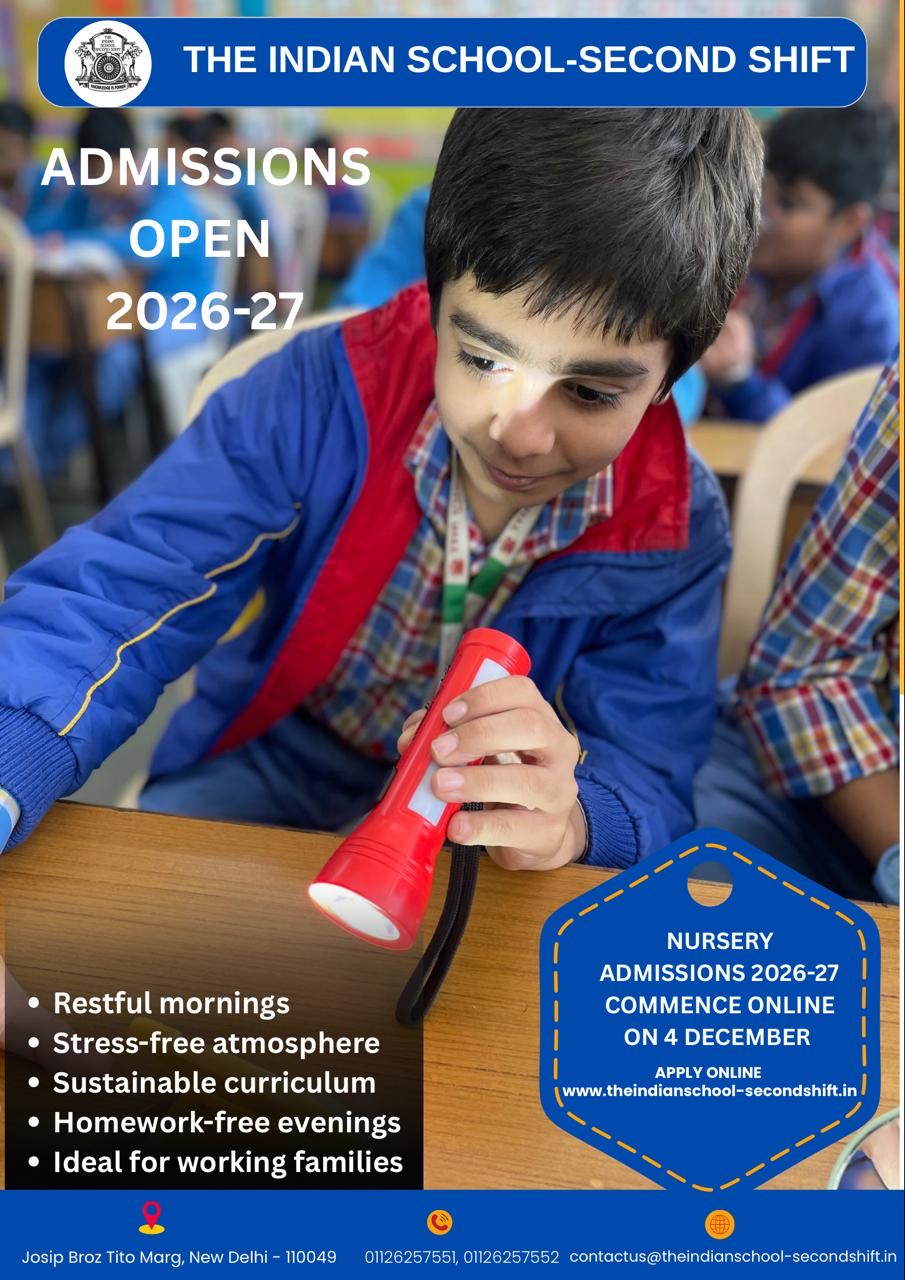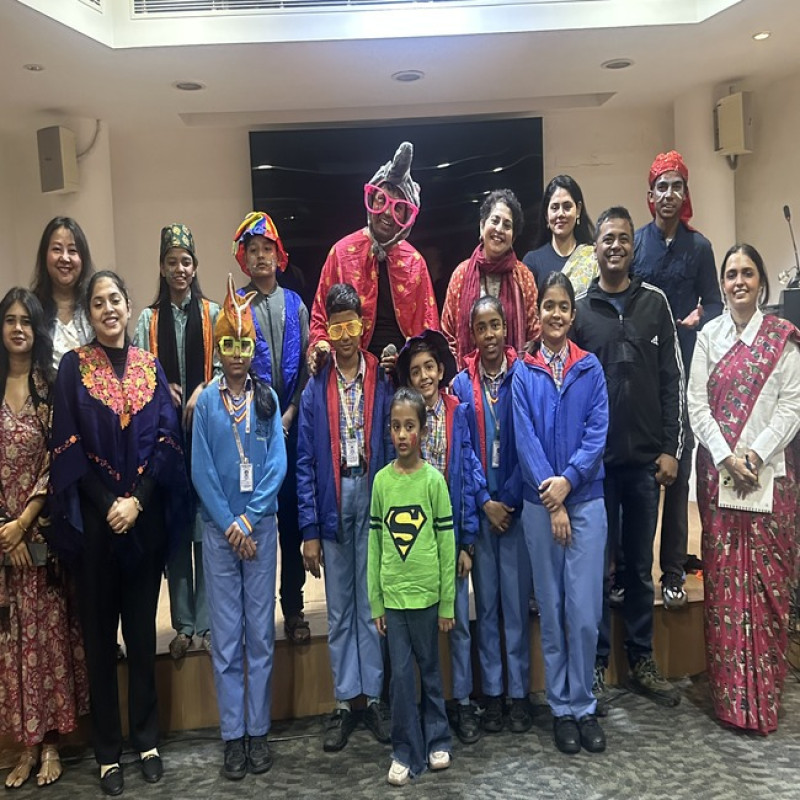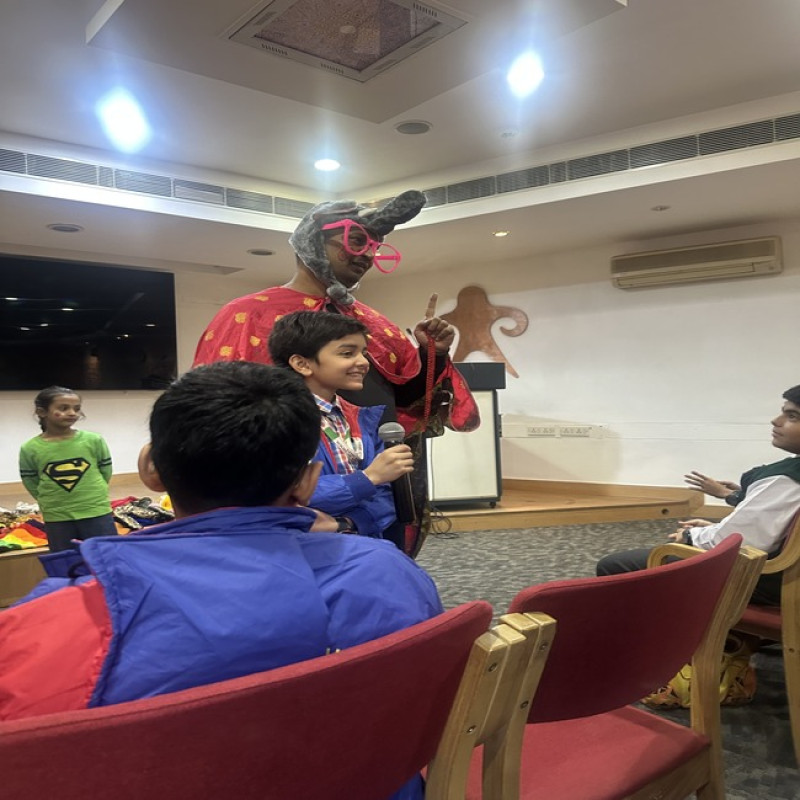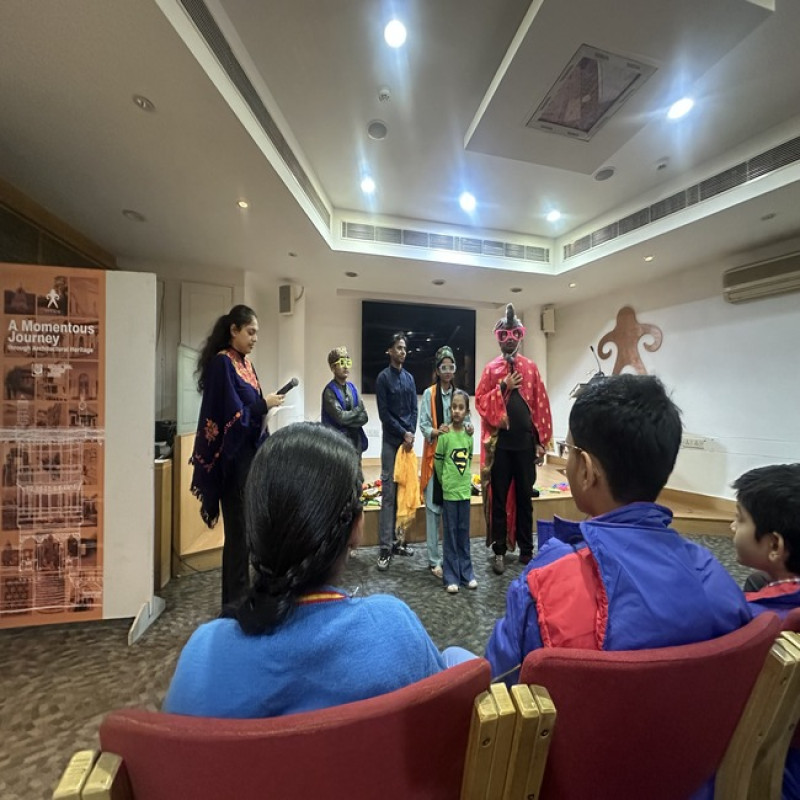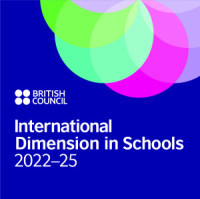QISSAGO Storytelling Workshop 2025
Organised by INTACH Heritage Education Centre, Lodhi Road
The INTACH Heritage Education Centre, Lodhi Road, hosted an engaging workshop on the ancient Indian storytelling tradition Qissago, on 19th November 2025, attended by students from over 50 schools across Delhi. The Indian School-Second Shift was represented by Ms. Anupriya Choudhary, accompanied by class 6 students Dakshana, Aadit Kumar, and Mirza Waleed Baig and class 7 students Drishti Khareta and Samaira. The workshop aimed to nurture cultural awareness, creative expression, and a deeper understanding of India’s heritage among young learners.
To introduce the students to the vast work undertaken by INTACH, a powerful documentary was screened. Ms. Purnima Dutt, Director of the INTACH HECS Delhi Chapter, addressed the audience before the screening and explained the meaning of heritage in both its tangible (such as monuments, crafts, structures, artefacts) and intangible forms (such as music, storytelling, oral traditions, cultural practices). She emphasised that both forms act as strong pillars in raising awareness about dying visual arts, endangered handicrafts, and the urgent need for cultural preservation. Ms. Dutt further spoke about how several monuments across India are constantly being restored and protected due to natural wear and tear, ensuring they remain accessible for future generations. She urged students to realise the importance of India’s rich and diverse cultural heritage and highlighted that today’s youth plays the most crucial role in preserving these traditions. She expressed that there could be no better platform than today’s workshop for children to unearth the significance of heritage and learn even a small yet meaningful segment of it. The documentary that followed captured INTACH’s monumental efforts across the country, leaving students deeply inspired and filled with admiration.
The session then transitioned into the core theme of Qissago. Students learned that Qissago—derived from the Urdu words qissa meaning ‘story’ and go meaning ‘one who narrates’—refers to a storyteller who preserves cultural memory through performance and oral tradition. Historically, qissa-go performers travelled across towns, narrating stories of kings, local heroes, ancestors, epics, and moral lessons. Students discovered that Qissago is more than storytelling; it is a refined art that blends voice modulation, memory, performance, humour, and cultural wisdom to pass knowledge from one generation to the next. The tradition still thrives in parts of India through folk theatre, singing, puppetry, recitation, and classical storytelling forms.
The workshop continued with vibrant demonstrations by performers from The Talent Group. Students watched in awe as storytellers brought characters to life using colourful props, especially those depicting Gajraj (the elephant). The performers highlighted Gajraj’s significance in Indian mythology, history, and folklore, capturing the imagination of the audience. The use of rhythm, rhyme, humour, and expressive narration created a lively environment filled with laughter, applause, and wonder.
An engaging interactive segment followed, where students conversed openly with Mr. Irshad Alam Khubi, the lead storyteller of the day. They discussed how increasing reliance on modern technology is slowly diminishing the joy of deep listening, reading, and reflective thinking. Mr. Khubi encouraged students to reconnect with traditional forms of expression that strengthen imagination and critical thought. Students also explored the concept of heritage through the lens of traditional Indian games. They named games like Hide and Seek and I-Spy, and identified their Indian equivalents, analysing how these games were originally rooted in logic, quick thinking, and storytelling. Many traditional games involved rhymes, mini-stories, and chants that helped children understand rules, strategies, and cultural associations—directly connecting them to the heart of kissa.
Throughout the workshop, students who actively participated and answered questions confidently were awarded special recognition props titled “Qissa Haqdars”—meaning Guardians of the Storyteller’s Tale. This motivated them immensely, and even quieter participants gradually joined in with excitement. The room buzzed with collaboration, curiosity, and joyful enthusiasm as students and teachers engaged together, filling the space with a sense of unity and shared learning.
The final segment of the workshop revolved around this year’s theme—Gajraj (elephants). Students participated in idiom-based games, subject-integrated tasks, and quick storytelling prompts that beautifully blended EVS, language, history, and performing arts. Tongue twisters added an element of fun and challenge, making the environment even more energetic. Students showcased their talents confidently, earning applause and admiration from the entire audience.
In conclusion, the workshop offered students a rare and immersive opportunity to experience storytelling as a living cultural tradition. It opened a gateway into India’s rich heritage, enabling them to understand its value, relevance, and timeless appeal. The INTACH Qissago workshop was not just an event—it was a journey into history, creativity, and cultural pride, leaving every participant inspired and enriched.

